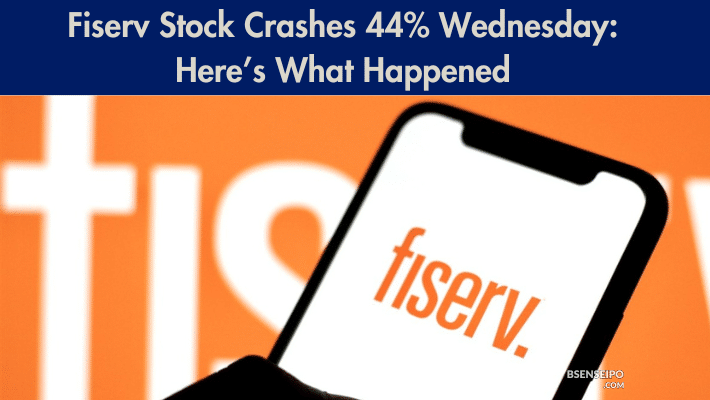Fiserv Stock Crashes 44% Wednesday: Here’s What Happened
October 29, 2025:
Fiserv Stock Crashes 44%: In a stunning turn of events, Fiserv Inc. (NASDAQ: FISV) — one of the world’s leading payment and financial technology providers — saw its stock plummet by a staggering 44% on Wednesday, wiping out billions in market value and shaking investor confidence across the fintech sector.
The Shocking Fall
Fiserv’s shares nosedived after the company released disappointing quarterly earnings that missed analyst expectations by a wide margin. Investors were alarmed by slowing growth in its merchant acceptance business and lower-than-expected transaction volumes from major retail partners.
The sudden decline marks Fiserv’s largest single-day drop in over a decade, signaling growing concerns about the company’s ability to maintain its market dominance amid intensifying competition from emerging fintech rivals.
Earnings Miss Sparks Panic
Fiserv reported revenue of $4.48 billion for Q3 FY2025, slightly below Wall Street estimates of $4.61 billion. Net income fell 28% year-over-year, driven by rising operational costs and lower processing margins.
The company’s Clover and Carat platforms, key growth drivers in recent years, saw transaction growth slow to 6%, compared to 14% last quarter — a sharp deceleration that spooked investors.
CEO Frank Bisignano acknowledged “short-term operational challenges” but reaffirmed Fiserv’s long-term growth outlook. “We remain confident in our strategy to deliver innovative payment solutions, though near-term headwinds have affected results,” he said in the earnings call.
Investor Reaction
The market reaction was swift and severe. Heavy institutional sell-offs followed the earnings report, triggering a wave of automated trading halts throughout Wednesday morning.
Analysts from major brokerages like Goldman Sachs and JP Morgan downgraded Fiserv’s rating from Buy to Neutral or Underperform, citing “limited visibility” on earnings recovery.
“Fiserv’s valuation has been heavily dependent on growth in its merchant business,” said Lisa Monroe, a fintech analyst at Morningstar. “A slowdown there raises structural concerns about the company’s future earnings potential.”
Fintech Sector Feels the Heat
The crash also sent ripples across the broader fintech and payments industry, with peers like Block (SQ), PayPal (PYPL), and Global Payments (GPN) seeing minor declines amid investor fears of a sector-wide slowdown.
Industry watchers noted that increased competition, macroeconomic uncertainty, and tightening global payment regulations are collectively pressuring margins across the board.
What’s Next for Fiserv?
Despite the sell-off, some analysts see this as a potential buying opportunity for long-term investors. Fiserv still holds a strong position in digital banking, card issuance, and payment infrastructure, with clients that include thousands of banks and merchants worldwide.
However, to regain investor confidence, the company must address:
- Operational inefficiencies in its merchant services unit
- Better cost management
- Clearer guidance for fiscal 2026
Final Thoughts
Fiserv’s 44% stock crash serves as a stark reminder of the volatility within the fintech sector, where even established players can face sudden market shocks.
While short-term sentiment remains bearish, the long-term outlook will depend on how effectively Fiserv adapts to an evolving digital payments landscape — and whether it can reassure investors that this setback is temporary, not structural.




